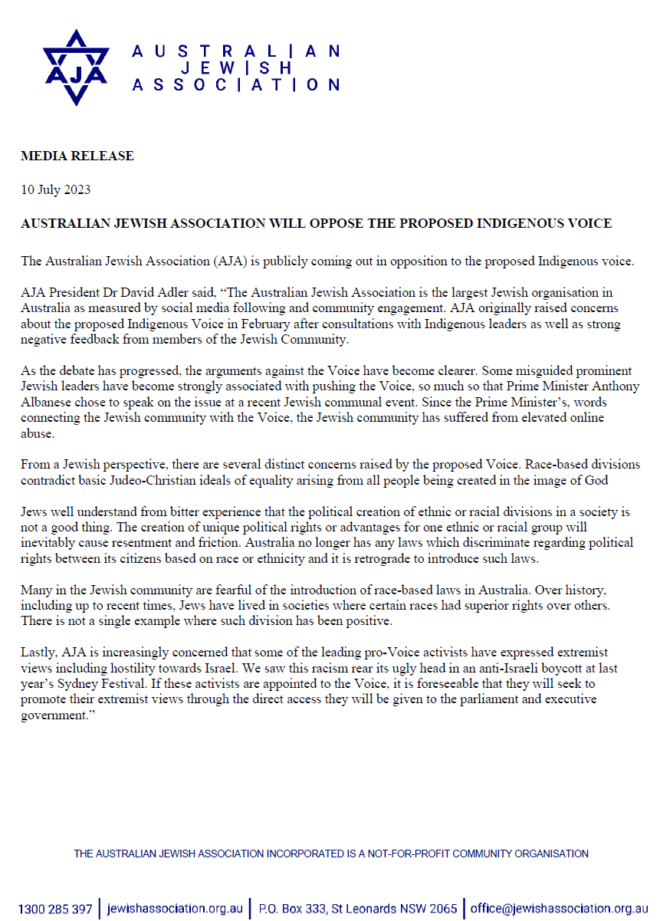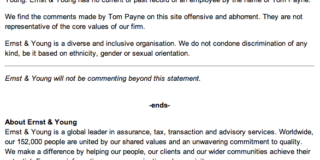
Preamble
In remembrance of my family caught up in the Holocaust, I stand firmly for Israel’s right to exist in peace and security within its recognised borders. Equally, I advocate for the Palestinian people’s right to life, cultural autonomy and self-determination.
Our Chorus Made Of Many
In this southern land, rust-red and coastal bright,
We gather – many stories, none above;
Around one table, every heart alight,
Each word a pebble in the stream we love.
No single tongue commands the morning air,
No culture weighs its shadow down the day.
The laughter, songs and prayers that gather there
Are chords in one unending, equal lay.
The spice of curries, scent of eucalyptus,
Sarongs and boots and braids and Southern Cross –
We learn to see what each of us contributes,
And none are rulers; no one voice is lost.
Let every heritage be softly spoken,
Distinct as dawn upon the desert stone.
With equity, no promise can be broken –
Our chorus made of many, never one alone.
by Bakchos.
Introduction
In July 2024, Jillian Segal was appointed as Australia’s Special Envoy to Combat Antisemitism. This role was created in response to rising concerns over antisemitic incidents that have surged following the October 7, 2023, Hamas attacks on Israel and the subsequent Gaza conflict. Segal, a prominent leader within the Australian Jewish community and a former president of the Executive Council of Australian Jewry (ECAJ), has since put forth a series of proposals aimed at curbing antisemitism. These initiatives include adopting the International Holocaust Remembrance Alliance (IHRA) working definition of antisemitism into law, enhancing Holocaust education in schools, implementing stricter hate speech laws, banning hate symbols such as Nazi salutes and improving mechanisms for reporting antisemitic incidents. Furthermore, her proposals advocate for better coordination among government, law enforcement and communities to tackle antisemitism in both online and offline spaces.
While these initiatives have garnered praise from some Jewish organisations for addressing a documented rise in antisemitic acts – ranging from vandalism to harassment – they have also ignited widespread debate and criticism. Opponents argue that these proposals risk conflating legitimate criticism of Israeli policies with antisemitism, infringe upon free speech, exhibit bias and highlight disparities in how Australia addresses various forms of racism. As of mid-2025, these concerns have intensified, particularly in light of Segal’s recent report, which calls for funding cuts to universities and cultural institutions that fail to combat antisemitism, as well as tougher penalties for offenders.
This essay delves into these multifaceted issues, incorporating an analysis of the Australian Jewish Association’s (AJA) vocal opposition to the 2023 Indigenous Voice to Parliament referendum. The AJA, a conservative Jewish advocacy group led by Dr. David Adler, opposed the Voice on the grounds that it would enshrine race-based divisions in the Constitution, contradicting Judeo-Christian values of equality and risking societal friction. Yet, the group’s support for Segal’s role and proposals – which effectively provide a specialised “voice” for Jewish concerns – raises questions of hypocrisy. This inconsistency underscores broader tensions in Australian multiculturalism, where efforts to protect one minority group may appear selective or self-serving. Drawing on public discourse, media reports and social media insights up to July 11, 2025, this essay examines these facets, arguing that while combating antisemitism is vital, Segal’s approach may exacerbate divisions rather than heal them.
Overview of Segal’s Proposals
Segal’s proposals represent a comprehensive strategy aimed at addressing antisemitism, grounded in her mandate to advise the government on policy and education. Central to her agenda is the IHRA definition, which describes antisemitism as “a certain perception of Jews, which may be expressed as hatred toward Jews,” and includes examples such as denying Jewish self-determination or holding Israel to double standards. She advocates for the integration of this definition into federal and state laws, educational curricula and institutional policies.
Key elements of Segal’s proposals include mandatory Holocaust education in schools, expanding hate crime legislation to encompass online incitement, prohibiting symbols associated with terrorist groups (beyond just Nazi icons) and establishing national reporting systems for incidents of antisemitism. In her 2025 report, Segal emphasised the need for accountability, proposing that universities and media outlets face funding cuts if they fail to adequately address antisemitism. She also called for banning protests that “intimidate” Jewish communities, linking weekly pro-Palestine rallies to rising tensions.
Supporters, including the ECAJ, view these measures as necessary responses to a significant spike in antisemitic incidents reported during 2024-2025, with data from the Australian Human Rights Commission indicating increased harassment. However, critics see these proposals as overreach, potentially prioritising one form of hate over others in a diverse nation.
Key Issues with the Proposals
Conflation of Antisemitism with Criticism of Israel
One of the most contentious issues surrounding Segal’s proposals is the potential misuse of the IHRA definition to stifle political discourse. Critics, including Amnesty International and various academics, argue that examples within the definition – such as claiming Israel’s existence is racist – could be interpreted to label anti-Zionism or critiques of Israeli actions in Gaza as antisemitic. This concern is exacerbated by Segal’s public statements, where she has characterised pro-Palestine slogans like “From the River to the Sea” as inherently antisemitic, lacking nuance for their varied interpretations.
In Australia, this conflation has manifested in campus controversies, where pro-Palestinian activism has led to investigations under similar frameworks. Human rights groups like Liberty Victoria have warned that this blurs the line between hate speech and dissent, echoing experiences in the UK and US where the adoption of the IHRA definition has chilled free expression. As of 2025, with ongoing conflicts in Gaza, this conflation risks alienating Muslim and Palestinian Australians, who have reported rising Islamophobia amid the same tensions.
Freedom of Speech and Expression Concerns
Segal’s calls for expanded hate speech laws and restrictions on protests raise significant alarms regarding democratic freedoms. Civil liberties advocates argue that banning symbols or rallies based on subjective criteria of “intimidation” could lead to selective enforcement, targeting pro-Palestine demonstrators while overlooking other forms of extremism. For instance, in 2024-2025, Sydney protests were labelled “sinister” by Segal, prompting demands for police intervention, despite many of these protests being peaceful.
The Australian Human Rights Commission has echoed these concerns, noting that broad laws might disproportionately affect marginalised voices. Critics point to international precedents where similar measures have suppressed journalism and activism, arguing that Australia’s existing Racial Discrimination Act already provides recourse without the need for expansive new powers.
Perceived Bias and Lack of Impartiality
Segal’s affiliations with pro-Israel organisations, including the Australia/Israel & Jewish Affairs Council (AIJAC), have fuelled accusations of bias. Her role is perceived by some as prioritising Zionist narratives over impartiality, with the Jewish Council of Australia (JCA) – a more progressive group – criticising her for allegedly repressing legitimate criticism of Israel’s actions in Gaza. Muslim leaders from the Australian Muslim Advocacy Network argue that Segal’s focus overlooks intersecting forms of racism, potentially deepening community rifts.
This perception is compounded by her report’s foreword, which notably omits over 65,000 years of Indigenous history, effectively erasing Aboriginal presence – an action described as “deeply disturbing” by various commentators. Such oversights suggest a narrow lens that prioritises Jewish concerns at the expense of addressing broader societal inequities.
Inequity in Addressing Broader Racism
A recurring critique of Segal’s initiatives is the establishment of a dedicated antisemitism envoy without equivalent roles for combating Islamophobia, anti-Indigenous racism or other forms of prejudice. Indigenous leaders have highlighted this as indicative of uneven priorities, especially following the 2023 Voice referendum’s failure. With rising Islamophobia linked to the Israel-Gaza conflict, critics like barrister Greg Barns SC have decried Segal’s perceived indifference to the harassment faced by Arab and Muslim communities.
Effectiveness and Implementation Challenges
This selective approach is seen as fuelling resentment, with multicultural organisations arguing that it undermines holistic anti-racism efforts. Data from the Australian Bureau of Statistics indicates mixed outcomes from similar international initiatives, calling into question whether focusing on a single issue genuinely fosters social cohesion.
Sceptics have raised doubts about the effectiveness of Segal’s proposals, noting that existing Holocaust education programs already exist and expressing concern that punitive measures may drive hate underground rather than eliminate it. Resource constraints on schools and law enforcement agencies are also significant issues, with academics arguing that root causes of antisemitism, such as online radicalisation, require broader strategies beyond punitive actions. Segal’s push for tougher court penalties is criticised for ignoring evidence suggesting that increased sentences do not necessarily deter crime.
The Australian Jewish Association’s Opposition to the Voice
To better understand the hypocrisy debate, it is essential to examine the AJA’s stance on the 2023 Indigenous Voice referendum. The AJA, positioning itself as Australia’s largest Jewish organisation by social media metrics, publicly opposed the Voice in July 2023. President Dr. David Adler argued that enshrining an advisory body for Indigenous Australians in the Constitution would create “race-based divisions,” contradicting Judeo-Christian ideals of equality, where “all people [are] created in the image of God.”
Adler cited historical Jewish experiences with ethnic divisions, warning that granting unique political rights to one group could invite resentment and societal friction. The AJA consulted with Indigenous leaders and reported strong negative feedback from Jewish members, who feared that race-based laws would be regressive. Additionally, concerns arose over the alleged hostility of pro-Voice activists toward Israel, exemplified by past anti-Israel boycotts.
This opposition led to a split within the Jewish community, with groups like the ECAJ supporting the Voice while the AJA condemned Prime Minister Albanese’s association of Jews with the “Yes” campaign, claiming it sparked online antisemitism. The AJA’s position aligned with conservative voices, emphasising unity over division and garnered significant online engagement. After the referendum’s failure, which resulted in 60% “No” votes, the AJA reiterated its principled stance against minority singling-out.

Hypocrisy Around the Segal Proposals
The AJA’s opposition to the Voice reveals stark hypocrisies when juxtaposed with its support for Segal’s proposals. While opposing the Voice for fostering ethnic privileges, the AJA benefits from Segal’s envoy role, which provides a direct advisory “voice” to the government on Jewish-specific issues – effectively a specialised mechanism that is absent for other minority groups. Critics label this inconsistency, arguing that Segal’s position enshrines unique access for Jewish concerns, mirroring the racial recognition that the AJA decried.
Adler has defended the AJA’s growth and authenticity, yet the group’s alignment with Segal – who is perceived as promoting Zionism – undermines its claims to equality. Progressive Jewish organisations, such as the JCA, accuse Segal of weaponising antisemitism to silence critiques of Israel’s actions in Gaza, highlighting the intra-community divides that this issue has exacerbated. Broader hypocrisy emerges in Segal’s report, which leverages Indigenous communities for Jewish sympathy while simultaneously erasing their historical presence.
Social media has amplified this discourse, with many questioning why Jewish groups receive special treatment while Indigenous Australians do not. This selective advocacy risks portraying Jewish organisations as self-interested, potentially fuelling antisemitic conspiracies that emerged during the Voice referendum debate. Commentator Mary Kostakidis has argued that conflating anti-Zionism with antisemitism serves Israeli agendas but erodes social cohesion within Australia.
Broader Implications for Australian Society
The issues and hypocrisies surrounding Segal’s proposals reflect deeper challenges within Australia’s multicultural landscape. By prioritising antisemitism without parallel envoys addressing Islamophobia or anti-Indigenous racism, the government signals an uneven valuation of lives, alienating Muslims and Indigenous peoples amid rising hate incidents. Segal’s proposed bans on protests threaten democratic rights and could suppress solidarity movements that aim to address broader social injustices.
The intra-Jewish splits – between the conservative AJA and the progressive JCA – underscore that no single group speaks with a unified voice, highlighting the need for nuanced policy discussions. Ultimately, effective anti-racism requires inclusive, evidence-based approaches that address all forms of racism equitably, rather than selectively prioritising certain issues at the expense of others.
Conclusion
Jillian Segal’s proposals, while well-intentioned, grapple with serious flaws: risks of conflation, infringements on speech, perceived bias, inequities in addressing broader racism and doubts about their overall effectiveness. The AJA’s opposition to the Voice, rooted in an anti-division ethos, exposes the hypocrisy of embracing similar privileges for Jewish issues. This inconsistency not only undermines the credibility of the AJA, but also highlights Australia’s ongoing struggle with balanced multiculturalism. Moving forward, it is imperative that policies address all forms of racism equitably, fostering unity rather than fragmentation. True progress in combating hate and discrimination demands a rejection of hypocrisy, an embrace of dialogue and a commitment to ensuring that protections uplift all Australians without silencing dissent.




Yea it seems to be hypocritical to give a voice to one tribe and demonise another.
We have a racial discrimination act ,surely that should be enough to deal with all racial cases
that are brought before it ??
Segal comes across as bias and pushing the Israeli agenda. Not wanting to hear that we have the right to protest against a #Genoicde.
Cheers another good article..